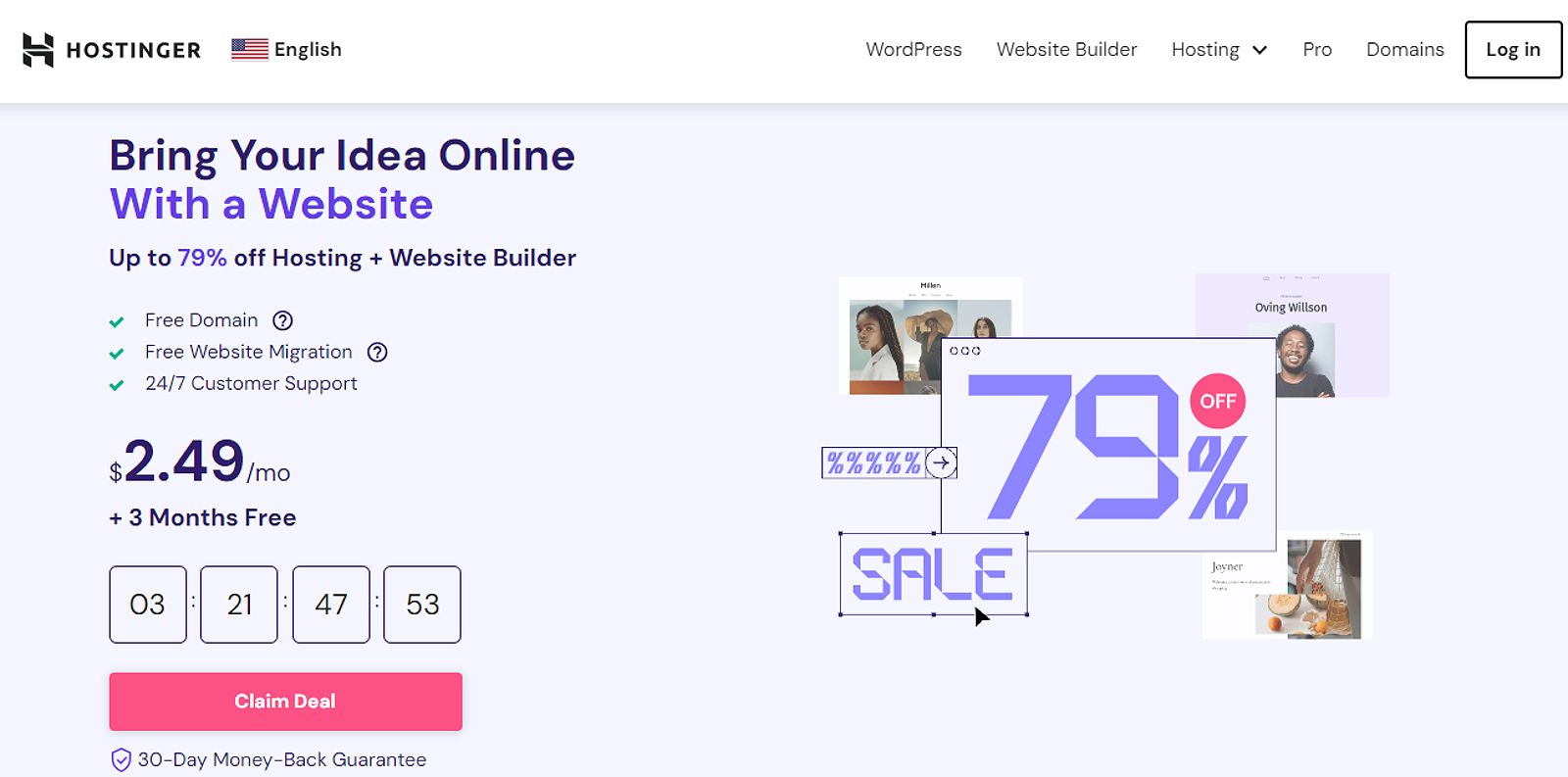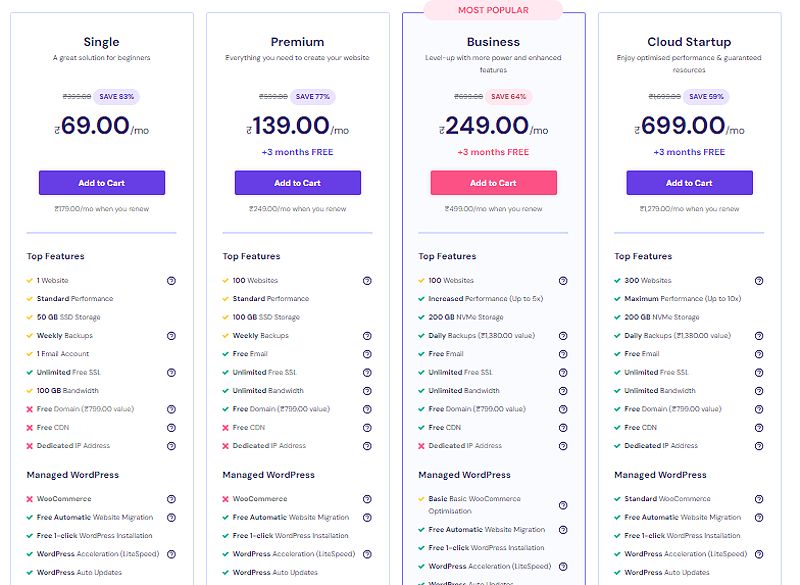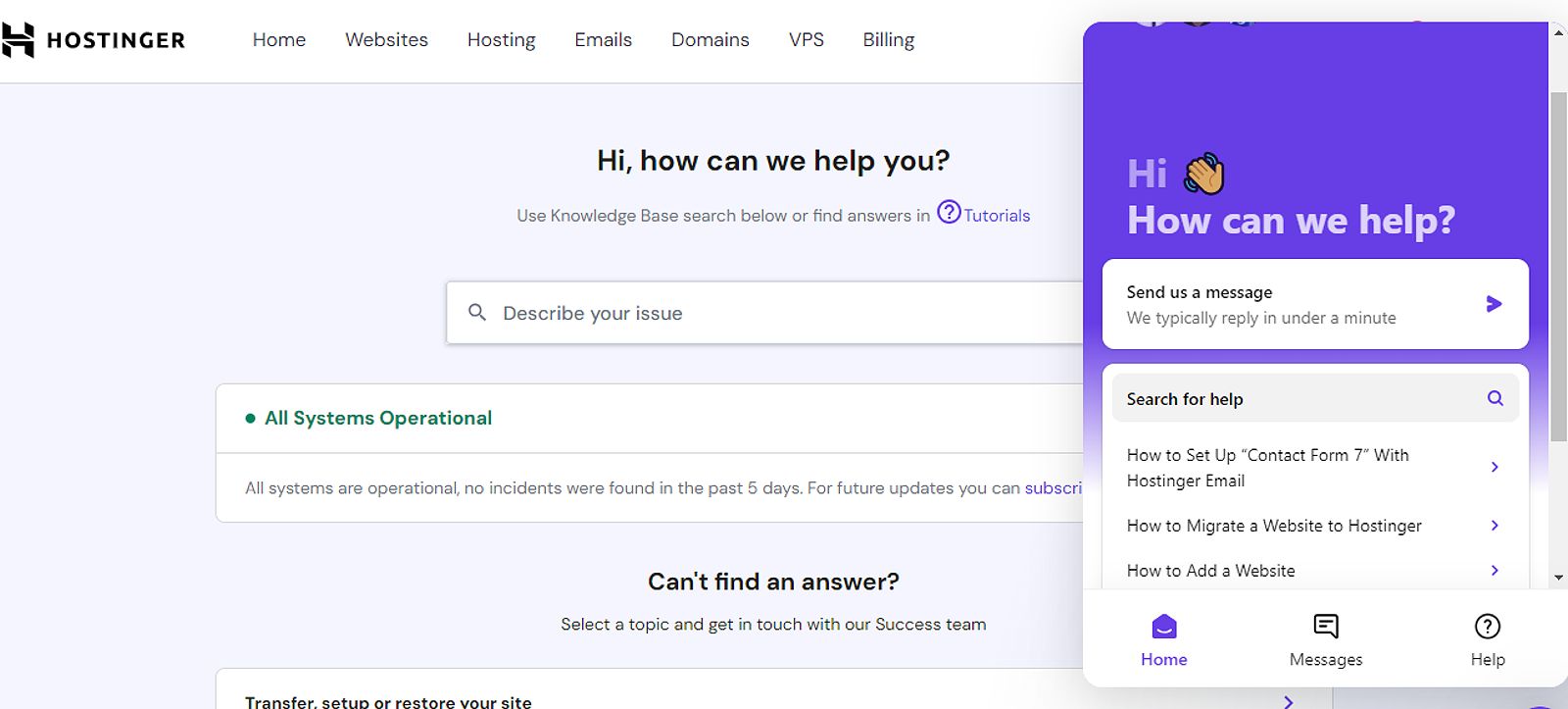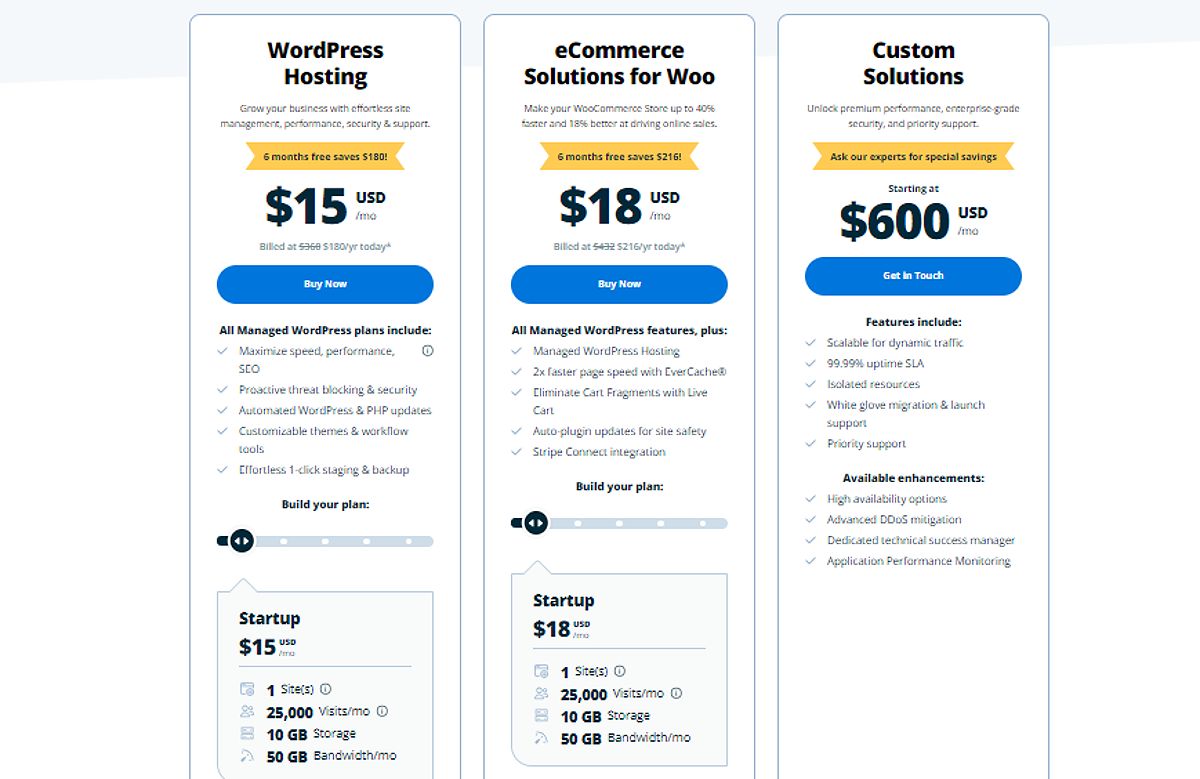Tired of the constant struggle to keep your WordPress website running smoothly? With so many hosting providers out there, it can be a daunting task to find the perfect match for your needs. This comprehensive comparison dives deep into the world of Hostinger and WP Engine, two leading players in the WordPress hosting arena. This article provides a head-to-head look at Hostinger and WP Engine, exploring their strengths, weaknesses, and the unique features that set them apart. Whether you’re just starting out or managing an established WordPress website, this guide will empower you to make an informed decision and find the hosting solution that best aligns with your goals. This is the Hostinger vs WP Engine Comparison you’ve been waiting for.
Unraveling the Performance and Uptime Conundrum
When it comes to website performance, you can’t afford to compromise. Hostinger and WP Engine have distinctly different approaches to ensuring optimal speed and reliability for their WordPress customers.
Hostinger’s performance chops are evident in its use of lightning-fast LiteSpeed servers, solid-state drives (SSDs), and a robust caching system. With a 99.99% uptime guarantee, Hostinger has consistently proven its ability to deliver a smooth and seamless user experience. The company’s global data center network further enhances website loading times, catering to a diverse audience.

However, as a shared hosting provider, Hostinger’s performance can be influenced by the overall server load and the resource allocation for individual websites. While its performance is generally impressive, sudden traffic spikes may impact the responsiveness of websites hosted on Hostinger’s shared plans.
On the other hand, WP Engine’s focus on managed WordPress hosting sets it apart. With a global content delivery network (CDN), advanced caching mechanisms, and high-performance servers, WP Engine ensures lightning-fast loading times and exceptional uptime. The company’s commitment to optimizing WordPress performance is evident in its customized solutions.

While WP Engine’s performance is generally outstanding, the pricing tiers and resource allocation may be a consideration for some users. Businesses with specific high-traffic requirements may need to carefully evaluate the plan options to ensure their website can handle the expected traffic surges.
When it comes to performance and uptime, both Hostinger and WP Engine excel, but WP Engine’s managed WordPress hosting approach gives it a slight edge. Hostinger’s shared hosting environment can still deliver excellent performance, but WP Engine’s specialized infrastructure and focus on WordPress optimization make it the preferred choice for businesses and individuals seeking the most reliable and high-performing hosting solution.
Unlocking the Power of Features and Functionality
The features and functionality offered by a hosting provider can significantly impact the capabilities and ease of use of your WordPress website. Hostinger and WP Engine cater to different user segments, each with its own unique offerings.
Hostinger’s comprehensive suite of features includes free SSL certificates, a user-friendly control panel, and a one-click WordPress installer — making it an attractive option for beginners and experienced users alike. Beyond the core features, Hostinger also offers advanced options, such as Git integration and VPS hosting plans, providing increased resources and control for users with more complex requirements.

In contrast, WP Engine specializes in managed WordPress hosting, providing a platform tailored specifically to the needs of WordPress users. Its offerings include automatic updates, daily backups, and robust security measures, ensuring a seamless and secure WordPress experience. For developers and advanced users, WP Engine’s integration with the Genesis Framework and access to StudioPress themes offer a compelling ecosystem for building high-performance, SEO-optimized WordPress websites.
While Hostinger’s features are well-rounded and suitable for most users, WP Engine’s WordPress-centric offerings and developer-friendly tools make it a standout choice for those who require a more specialized and optimized hosting solution.
Hostinger vs WP Engine Comparison: Unraveling the Pricing Puzzle
Pricing is a crucial factor for website owners, especially those on a tight budget. Hostinger and WP Engine offer distinct pricing models, each with its own advantages.
Hostinger is widely known for its budget-friendly hosting plans, with shared hosting options starting at an extremely competitive price point. The company’s affordable pricing, combined with a range of features, makes it an appealing choice for those looking to establish an online presence without breaking the bank.

While Hostinger’s low-cost plans may sacrifice some advanced features, the value proposition lies in the balance between affordability and the core functionality needed to run a WordPress website effectively. The company’s promotional offers and discounts further enhance the value for new users.
In contrast, WP Engine positions itself as a premium managed WordPress hosting provider, with pricing tiers that reflect the specialized services and performance it offers. This higher-end pricing may deter some users, but it also caters to businesses and individuals who prioritize exceptional website performance, security, and support.

The value of WP Engine’s hosting plans lies in the comprehensive managed services it provides, including automatic updates, daily backups, and advanced security features. For businesses and website owners who require a fully-managed WordPress hosting solution, WP Engine’s pricing may be justified by the benefits it offers.
When it comes to pricing and value, Hostinger and WP Engine cater to different user segments. Hostinger’s affordable plans make it an attractive option for budget-conscious users, while WP Engine’s premium pricing is better suited for businesses and individuals who prioritize managed WordPress hosting features and specialized support.
Securing Your WordPress Website: Hostinger vs- WP Engine
Ensuring the security and reliability of your WordPress website is crucial, and the level of support offered by the hosting provider can make a significant difference in your overall experience.
Hostinger takes security seriously, offering features such as free SSL certificates, daily/weekly backups, and two-factor authentication. While the shared hosting environment may pose some inherent security risks, Hostinger’s security measures provide a solid foundation for protecting your website. However, it’s essential for Hostinger users to maintain best practices for website security, such as keeping WordPress and its plugins up-to-date, to mitigate potential vulnerabilities.
WP Engine’s managed WordPress hosting approach includes comprehensive security measures, such as automatic updates, malware scanning, and a web application firewall. The company’s focus on protecting WordPress websites from threats is a key advantage for users who prioritize security. The managed nature of WP Engine’s hosting solutions means users can enjoy increased peace of mind, as the company takes on the responsibility of maintaining and securing the underlying infrastructure.
When it comes to customer support, both Hostinger and WP Engine offer 24/7 assistance through various channels. Hostinger provides support via live chat, email, and a ticketing system, while WP Engine’s support team is known for its expertise in WordPress-related issues, ensuring users receive prompt and knowledgeable assistance.
In terms of security and support, WP Engine’s managed hosting approach provides a slight edge, with its comprehensive security measures and specialized WordPress expertise in its support team. However, Hostinger’s security features and customer support are still solid, making it a viable option for users with more modest requirements.
FQAs: Answering Your Burning Questions
What are the main differences between Hostinger and WP Engine? The primary differences lie in their target audience and hosting approaches. Hostinger offers a broad range of affordable shared hosting plans, catering to a wider audience, while WP Engine specializes in managed WordPress hosting, providing a premium service with enhanced performance, security, and support tailored specifically for WordPress websites.
Which hosting platform is better for beginners? For beginners, Hostinger may be the more accessible option. Its user-friendly control panel, one-click WordPress installation, and budget-friendly pricing make it a suitable choice for those new to website creation and management. WP Engine, while offering a more robust and optimized WordPress hosting experience, may have a steeper learning curve for those without prior WordPress experience.
Is Hostinger a good option for high-traffic websites? Hostinger’s shared hosting environment may not be the ideal choice for websites with consistently high traffic volumes. While Hostinger can deliver reliable performance for many websites, sudden spikes in traffic may impact the responsiveness of sites hosted on its shared plans. For high-traffic websites, considering a VPS or dedicated hosting solution from Hostinger or exploring managed WordPress hosting options like WP Engine may be more appropriate.
Does WP Engine offer a free trial? Yes, WP Engine does offer a free trial period for its hosting services, allowing users to test the platform and its features before committing to a paid plan. The duration of the free trial may vary, so it’s recommended to check the current offering on the WP Engine website.
Is Hostinger a good option for e-commerce websites? Hostinger can be a suitable option for e-commerce websites, especially for small to medium-sized online stores. The company’s hosting plans include features like free SSL certificates, which are essential for secure online transactions. However, for high-volume e-commerce websites or those with specific requirements, such as advanced security and scalability, evaluating managed WordPress hosting options like WP Engine or exploring dedicated hosting solutions may be more appropriate.
Conclusion: Choosing the Right WordPress Hosting Platform
When it comes to selecting the best hosting platform for your WordPress website, the decision ultimately comes down to your specific needs, budget, and priorities. Hostinger offers a compelling balance of affordability and essential features, making it an attractive option for beginners and those on a tight budget. WP Engine, on the other hand, excels in its managed WordPress hosting approach, providing specialized performance, security, and support features that cater to businesses, agencies, and more advanced WordPress users.
Whether you’re just starting your online journey or managing an established WordPress website, carefully considering the factors discussed in this comparison can help you determine the hosting platform that best aligns with your requirements. By understanding the strengths and limitations of both Hostinger and WP Engine, you can make an informed decision that will set your WordPress website up for long-term success.
So, which hosting platform will you choose? Take the time to explore your options, consider your specific needs, and make a decision that will propel your WordPress website to new heights. The right hosting solution can make all the difference in your online success. With Hostinger’s affordability or WP Engine’s premium managed services, you can find the perfect fit for your WordPress website and unlock its full potential.














